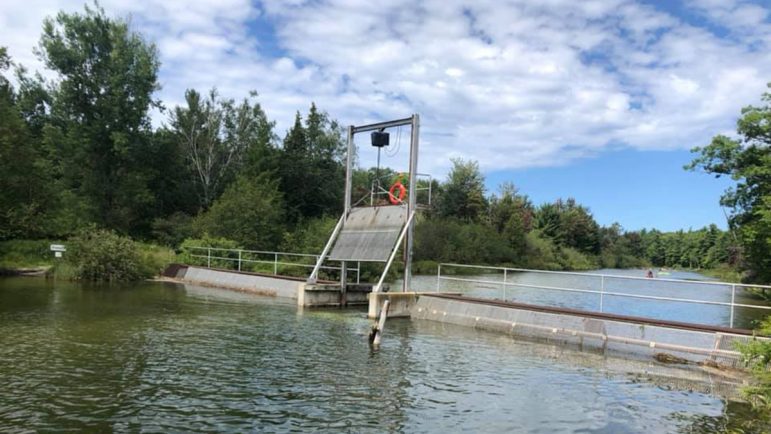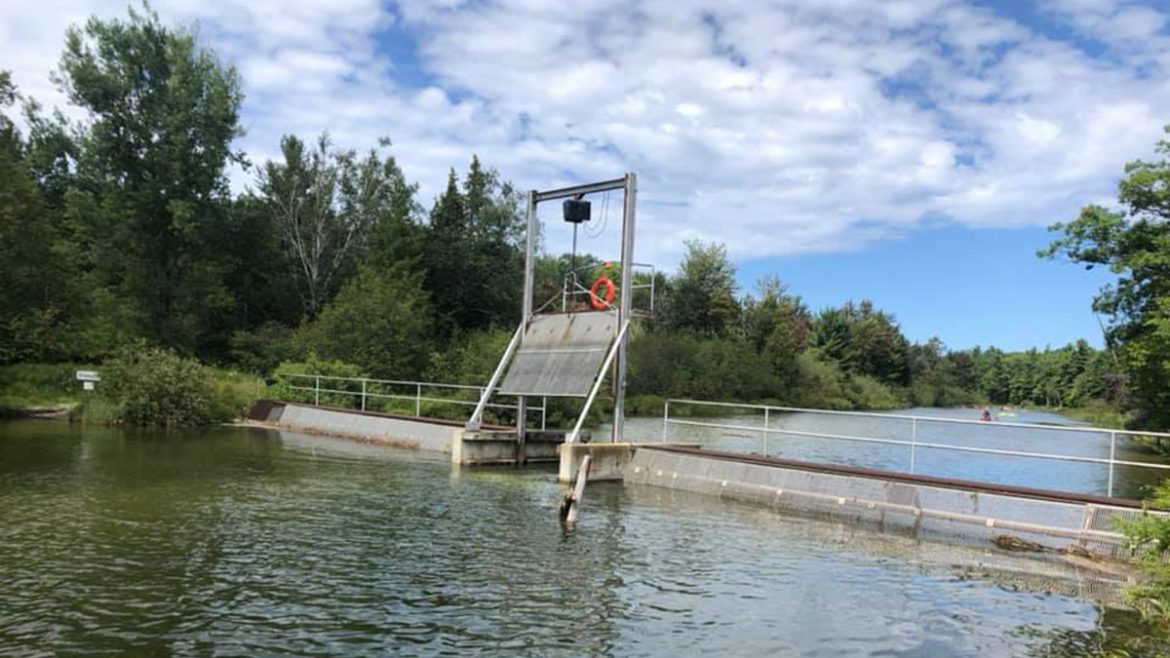
By Dylan Engels
A new fishing season started this month, and that means Michigan’s Department of Natural Resources has plans for stocking sport fish in the state’s waters.
The DNR conducts a lot of research to make sure that the department isn’t overpopulating the Great Lakes with fish it releases.
“Based on our research – which not only includes what percent of the population is wild versus fish coming back into the stream to spawn naturally – we also look at the forage that is out in the lake available for the fish to eat,” said Aaron Switzer.
Switzer is the fish production program manager at the DNR’s Platte River State Fish Hatchery and Weir in Beulah.
“Based primarily on those two things, we can determine numbers to stock for natural reproduction,” Switzer said.
The hatchery along the Platte River is where the DNR started its salmon program that produces Atlantic, chinook, and coho salmon.
The plan is to release 100,000 Atlantic salmon, 450,000 chinook salmon and 1,650,000 coho salmon into the Great Lakes this spring.
“We started stocking salmon in the Great Lakes because of ecosystem balance, which is why we stock fish in general,” said Switzer.
DNR’s management techniques reflect the fact that “the Great Lakes are so dynamic,” he said.
DNR also has hatcheries in Oden, Marquette and Mattewan.
For anglers to keep salmon caught in streams and Lake Michigan, they must be at least 14 inches, and only five salmon can be kept in one day.
“I don’t think there’s an odd concern about overfishing,” said Justin Tomei, the policy and government affairs manager for Michigan United Conservation Clubs. “The DNR does pretty well with the data that they have.”
“We have a lot of protections in place based on the fishing regulation side, the equipment, methods of taking the fish and getting rid of things like snagging fish.” Tomei said.
Christian LeSage, a fisheries biologist for DNR, said that even if overfishing were to happen, the department doesn’t have authority to change the amount of recreational fishing licenses issued.
“The state legislature sets the fees, and if there was some type of emergency, we would have to draft a fisheries order to change the regulations to stop,” LeSage said.
Although the DNR can’t change the number of licenses, it can adjust the specific season for each fish, yet that isn’t a common occurrence, he said.
“There have been a few instances over the last 20 years where we’ve had low water in certain areas,” said LeSage.
“If the water is low and someone can see a bunch of fish congregating, that creates a lot of activity for anglers, and it also brings some unlawful activities,” he said.
This year, the DNR reduced the minimum size requirement for steelhead trout in some streams.
The department also imposed single pointed hook restrictions in the ports at Grand Haven, Muskegon and Whitehall beginning in November of this year.
A prohibition on spearfishing also takes effect in November.
